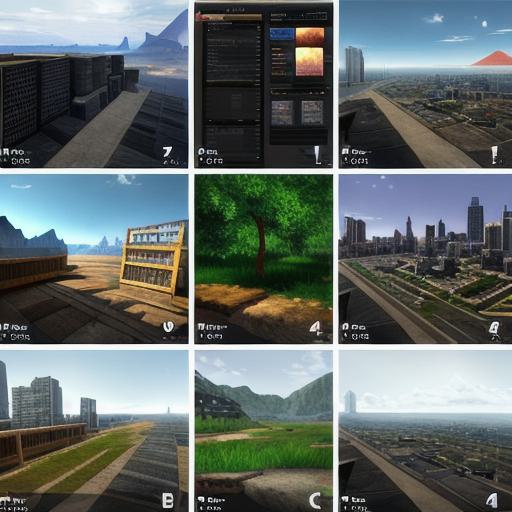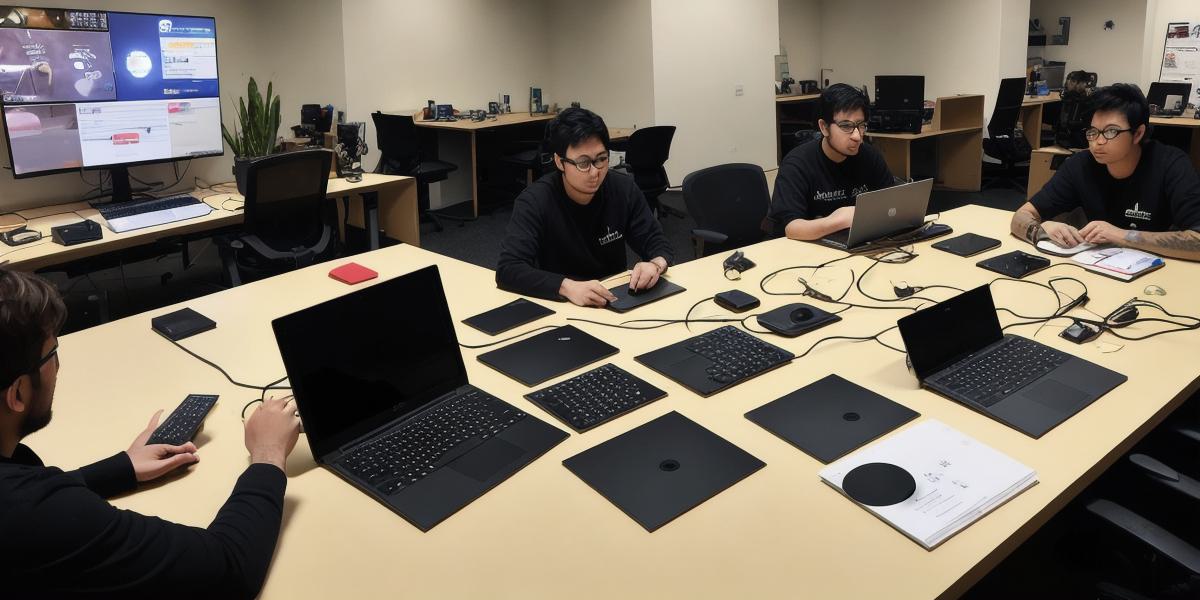Are you a passionate game developer looking to give back to your community and gain valuable experience in the field? If so, you may want to consider volunteering in game development. In this comprehensive guide, we will explore various opportunities available to developers who are interested in volunteering their time and expertise to create games that can benefit society.
- Introduction: Why Volunteer in Game Development?
Volunteering in game development can provide numerous benefits for both the volunteer and the community. Firstly, it allows developers to gain valuable experience in a variety of areas such as game design, programming, and art production. Secondly, it provides an opportunity to give back to the community by creating games that can educate, entertain, or help solve real-world problems. Lastly, volunteering in game development can also lead to new connections and potential career opportunities. - Types of Game Development Opportunities for Volunteers
There are many different types of game development opportunities available for volunteers, including:
a. Educational games: Develop games that teach a specific skill or subject matter to children or adults. These games can be used in schools, libraries, and other educational institutions. For example, developers could create a game that teaches coding or math skills to children.
b. Charitable games: Create games that raise awareness about a specific cause or issue and encourage players to take action. Examples of charitable games include awareness-raising games, fundraising games, and educational games. For instance, developers could create a game that raises awareness about climate change or promotes healthy eating habits.
c. Therapeutic games: Develop games that can be used in therapy or rehabilitation settings. These games can be designed to help individuals with disabilities, mental health issues, or other health conditions improve their cognitive or motor skills. For example, developers could create a game that helps individuals with autism develop social skills or a game that helps individuals with depression manage their mood.
d. Social impact games: Create games that have a positive social impact on the community. Examples of social impact games include simulations of complex societal issues such as poverty, climate change, and conflict resolution. For instance, developers could create a game that simulates the challenges faced by refugees or a game that helps individuals understand the impact of their daily choices on the environment.
- Finding Volunteer Opportunities in Game Development
There are many ways to find volunteer opportunities in game development. Here are some tips:
a. Look for local game development groups or organizations that are looking for volunteers. These groups may have specific projects in mind that need your skills and expertise. For example, you could join a game jam group or a community development group that focuses on creating educational games.
b. Search online for game development communities or forums where volunteers are needed. You can also post your own volunteer profile and indicate the types of opportunities you are interested in. There are many websites and forums dedicated to game development, such as GameMaker Studio, Unity, and Unreal Engine.
c. Consider volunteering with non-profit organizations or charities that specialize in creating games for a specific cause. These organizations may have ongoing projects that require volunteers with game development skills. For example, you could volunteer with an organization that creates games to raise awareness about animal rights or an organization that creates games to promote peace and understanding between different cultures.
d. Network with other game developers and ask them if they know of any volunteer opportunities. Many game developers are passionate about giving back to their communities and may be able to connect you with a relevant opportunity. You could join online groups or forums dedicated to game development and reach out to other members to see if they know of any volunteer opportunities. - How to Effectively Volunteer in Game Development
To effectively volunteer in game development, it is important to:
a. Be clear about your goals and expectations. Make sure you understand what the volunteer opportunity entails and what you can expect to learn or contribute. It’s important to set realistic expectations and communicate them clearly with the organization or group you are working with.
b. Show up on time and be reliable. If you commit to a specific project or task, make sure you follow through and complete it to the best of your ability. Volunteering requires commitment and discipline, and it’s important to take ownership of your tasks and responsibilities.
c. Be open to feedback and criticism. Game development is a collaborative process, and volunteers should be willing to listen to constructive feedback and suggestions from others. It’s important to be receptive to feedback and use it to improve your skills and contributions.
d. Keep your skills up-to-date. Volunteering in game development can be a great way to learn new skills and stay current with the latest trends in the industry. It’s important to continue learning and growing as a developer, even outside of formal education or training. - Conclusion: The Benefits of Volunteering in Game Development
Volunteering in game development can provide numerous benefits for both volunteers and communities. By giving their time and expertise, developers can create games that can educate, entertain, or help solve real-world problems. Additionally, volunteering in game development can lead to new connections and potential career opportunities.
